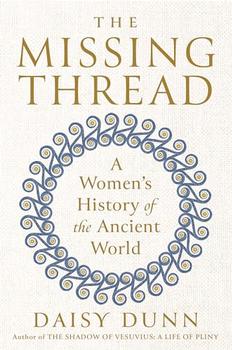Book Club Discussion Questions
In a book club? Subscribe to our Book Club Newsletter!
Please be aware that this discussion guide will contain spoilers!
- Why has Jo Baker chosen The Undertow for her title? Where does a literal undertow appear in the novel? What is the metaphoric undertow that exerts a pull on all the main characters?
- Why does Baker begin the novel with Amelia and William at a cheap movie theater watching a film about treachery, jealousy, and betrayal, but which ends happily: "All troubles are over, all discord is resolved: no one loves the wrong person or wants something they can never have, or has to face something they simply cannot face" (p. 5). How does this opening scene set up some of the themes that will recur throughout the book?
- What is the appeal of following a single family through four generations? In what ways are William, Billy, Will, and Billie remarkably alike? What common threads run throughout the generations? In what ways are they quite different from one another?
- The desire to escape is a major theme of The Undertow. In what ways do William, Billy, Will, and Billie all attempt to escape? Why do they feel trapped? What different methods do they use to get free?
- In what ways are history and family history deeply intertwined in The Undertow? How does the history that one generation lives through affect the next generation?
- When William wanders into a cathedral on Malta in 1915, he sees Caravaggio's painting The Beheading of St. John the Baptist and thinks: "This is not a holy picture.... This is not a holy place. There's too much dirt and dark and blood: this is all too human... there's no God, no guidance, no forgiveness here" (p. 21). Nearly ninety years later, Billie views the very same painting. Compare her response, on pp. 311 - 12, to her great-grandfather's. How does the painting influence Billie's own sense of artistic purpose?
- Why would Billie want to paint "what people don't look at... to paint it and put it in a frame and make it something that people really look at. Deliberately. That they linger over" (p 321)?
- When Will worries that Billie's painting of Matthew - which appears in a group of her paintings of wounded soldiers - is tempting fate, Billie says: "I think, whatever it is, by not looking at it, not saying it, not admitting it to yourself, that's the temptation, that's the danger. You've got to look fate right in the eye. You've got to stare it down" (p. 327). Is Billie right about this? In what ways does she embody a new openness that none of her ancestors could achieve?
- What are the major secrets that run throughout the novel? What are their consequences?
- How does Billy react to his son Will's disability? Why does he feel his killing the boy in Normandy was the "down payment" (p. 175) for a second chance at having a healthy son?
- In what ways does war pervade The Undertow? How does it affect each of the main characters? In what ways does the novel show the emotional costs of war across generations, for both men and women?
- What role does Sully - William's shipmate who survived the sinking of the Goliath - play in the novel? Is there a larger significance in his menacing reappearances?
- When Amelia's boss, Mr. Jack, mentions the rumor of a new front opening in France, he tells her: "But keep it to yourself, eh?... Keep mum." Amelia thinks: "Motherhood and silence: why the same word?" (p. 149). What is the connection between motherhood and silence, especially for women of Amelia's generation?
- In what ways does The Undertow offer a very personal history of the twentieth century? Discuss the emotional evolution that occurs from William in 1914, through Billy and Will, to Billie in 2005?
- Why has Jo Baker chosen to end the novel with a scene of lyrical tenderness, as Billie thinks of the future and the present: "There will be illness, and there will be death, and through it all there will be love. But for now, the blackbird still sings outside the window. Now, there is just the kiss, and the taste of coffee, and the clear strong knowledge that this, however long or brief, is happiness" (p. 341)? Why would Billie locate happiness in such a simple, ordinary moment? In what ways does this passage echo Billy's philosophy of not looking further than the next ten yards?
Unless otherwise stated, this discussion guide is reprinted with the permission of Vintage.
Any page references refer to a USA edition of the book, usually the trade paperback version, and may vary in other editions.




